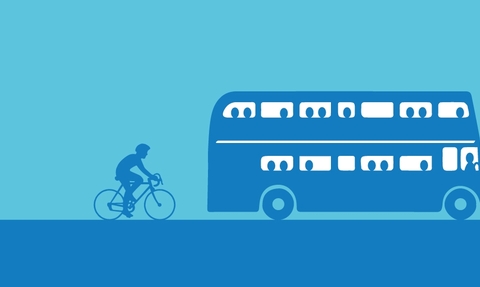
Leave the car at home
It has been well documented that emissions from cars pollute the world around us and cause significant health impacts. Carbon dioxide (CO2) is released by burning fossil fuels like oil, which the petrol and diesel that we use in our cars is derived from. This harmful greenhouse gas contributes to climate change, including extreme weather events, sea-level rise, floods and drought.
Additionally, our cars produce nitrogen oxides (NOx). When we breathe this in it can, over time, affect how well our lungs work, as well as the health of our wildlife. Indeed, poor air quality is the largest environmental risk to public health in the UK. Conditions like asthma, chronic bronchitis, heart disease and stroke are caused, or made worse, by air pollution.
Reducing your vehicle emissions doesn’t just reduce the pollution you produce, but can also save you money too!
Vehicle emissions:
- Contribute to increased levels of pollution and poor air quality.
- Contribute to climate change.
- Consume large amounts of raw materials.
- Lead to ill health, such as breathing problems, in both people and wildlife.
Making changes to your vehicle emissions will:
- Reduce your transport costs.
- Reduce your fuel bills.
- Reduce your road tax costs if you switch to a lower emission car.
- Reduce wear and tear on your car and save you money in the long-term.
Ten top tips for reducing your vehicle emissions:
- Where possible, use public transport – chances are they're going where you are!
- Car share with colleagues and friends.
- Take car sharing as an opportunity to meet new people – try a ride-sharing service!
- Choose two wheels instead of 4 – cycling to your destination is good for your health and the environment.
- Take a hike – enjoy the walk instead of being sat in the car.
- Avoid using cars for short journeys – combine trips or use other transport.
- Care for your car – tyre pressure and brake up-keep can both impact the level of emissions.
- Drive efficiently – avoid idling, use higher gears and maintain a steady speed whenever possible. Avoiding heavy braking can also reduce the amount of microplastics that your tyres shed.
- Open the windows instead of using the air conditioning – air conditioning systems increase fuel consumption and emissions.
- Choose a greener car – hybrid and electric vehicles are greener alternatives, and electric vehicles produce no exhaust emissions when being driven.
Have you been cycling or walking to work? What have you noticed along the way? Birds singing in the morning and flowers blooming in the Spring - let us know!

